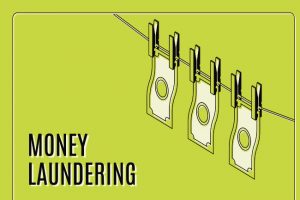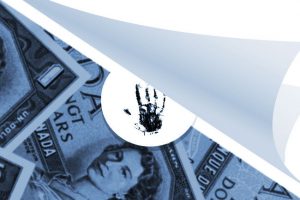 When it comes to British Columbia, money laundering has been a topic of wide discussion highlighting existing issues in need of more attention. British Columbia Attorney-General David Eby recently showed footage of individuals bringing piles of cash in a provincial casino venue at the Union of B.C. Municipalities annual convention.
When it comes to British Columbia, money laundering has been a topic of wide discussion highlighting existing issues in need of more attention. British Columbia Attorney-General David Eby recently showed footage of individuals bringing piles of cash in a provincial casino venue at the Union of B.C. Municipalities annual convention.
He noted that measures have been taken, but there is more that should be done. Money laundering practices, just like all criminal underground ones, are hard to keep track on and pinpointing their actual magnitude is quite the task.
This is something Attorney-General Eby is aware of, as he pointed it out during his last presentation on the subject. He aimed to raise awareness of the issue while making it known that measures have been taken as of now. The only way this current situation could be improved would be through excellent information flow.
Crackdown Hit Casinos
 The collaboration between several vulnerable fields could make the task much easier and minimize money laundering opportunities. As a result of multiple reports on the subject, issued by experts such as former Royal Canadian Mounted Police Deputy Commissioner Peter German, insufficient information flow was pinpointed as a serious issue.
The collaboration between several vulnerable fields could make the task much easier and minimize money laundering opportunities. As a result of multiple reports on the subject, issued by experts such as former Royal Canadian Mounted Police Deputy Commissioner Peter German, insufficient information flow was pinpointed as a serious issue.
Communication between the British Columbia government and Ottawa left something to be desired, eventually obstructing work on battling money laundering, allowing it to thrive and reach new heights.
Mr. Eby addressed the issue saying that neither the casino management nor provincial officials found this substantial cash flow suspicious. As a result of the money laundering crackdown on a provincial level, many locations among which Parq Casino Vancouver experienced gaming revenue drop.
Finance Minister Carole James also made it clear that local regulations have been worked on in order to prevent dirty cash from flowing freely, however the task has not been the easiest. Simon Fraser University business Prof. Maureen Maloney transformed this spring with a report on real estate revealing staggering sums.
Real Estate Enabled Laundering Too
Combating Money Laundering in B.C. Real Estate report showed that on a national level, some CA$46.7 billion was washed in 2018 solely. Contrary to popular belief, Alberta was the province that has reportedly laundered the largest amount – CA$10.2 billion. Ontario followed closely with CA$8.2 billion, whereas British Columbia ranked third with its CA$6.3 billion of dirty cash washed. One of the latest measures battling this issue was the introduction of the Land Owner Transparency Act.
A public inquiry is something many Canadians are looking forward to, as fall was projected to give green light to such. Andrew Scheer, Member of Parliament for the riding of Regina—Qu’Appelle, recently stated that the real estate field is about to see an inquiry seeking the reason behind the rising housing market prices. Greater Toronto Area and Vancouver have been the areas seeing the biggest impact.
Angus Reid Institute conducted a detailed survey on the subject, aiming to learn more about Canadians’ perspective on money laundering. It revealed that about 74 percent of the people participating in it consider it a serious issue on a provincial level, while more than 80 percent claim that the nation as a whole should do something about it.



















